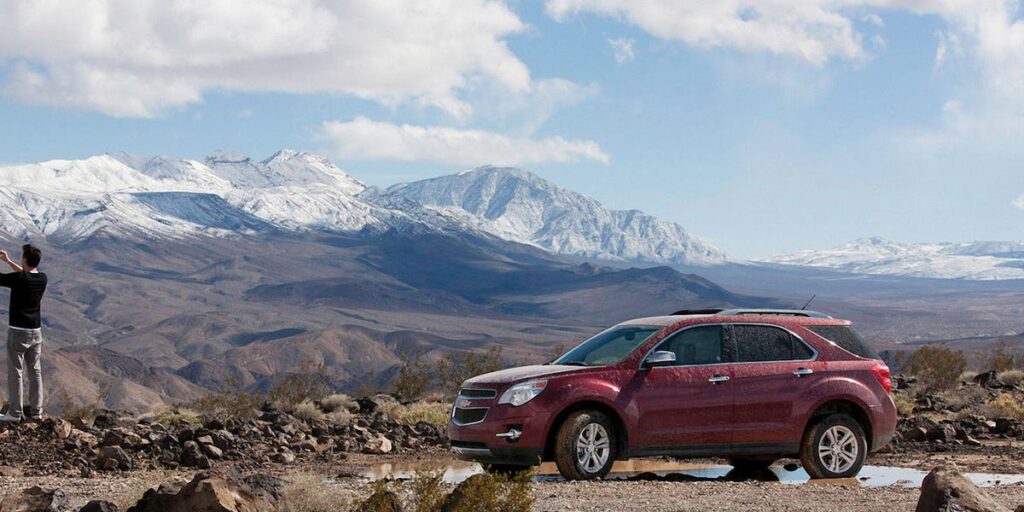- American customers want more affordable EVs.
- Their wishes may soon come true, with a host of cheaper electric vehicle models set to hit the market in the coming years.
- Chevrolet and Volvo are releasing new EVs, and Ford and Tesla have also hinted at cheaper models.
EVs have an affordability problem.
Demand for electric vehicles has slowed in recent months amid a lack of cheaper options, prompting automakers to rush to develop more affordable electric vehicles.
The average transaction price for an EV in 2023 will be $61,702, compared with $47,450 for other vehicles, according to Edmunds data.
This affordability gap appears to be deterring many would-be EV buyers, with some opting instead for hybrids, which are typically cheaper than fully electric vehicles.
Fortunately for these consumers, more affordable electric vehicles should be available in the coming years, with major manufacturers like Tesla and Ford teasing cheaper models to join manufacturers like Nissan and Mini that already offer lower-cost options.
Other new affordable EV options coming soon include:
Volvo EX30
The Volvo EX30 is due to arrive in the U.S. this summer, priced competitively at $35,000.
The EX30 has an estimated range of 275 miles and can accelerate from 0 to 60 mph in under four seconds.
One Volvo sales manager described it as a “game changer” and told Reuters his dealer was already collecting a deposit for each EX30 they would receive.
Volvo's latest model also boasts a stylish design and high-tech interior, as Business Insider's review of the car revealed early last year.
Kia EV3
Kia and its South Korean parent Hyundai have seen their U.S. sales soar this year as they tap into demand for more affordable EVs.
Kia plans to capitalize on that with its EV3, a compact electric SUV that has a range of 373 miles and can charge from 10 to 80 percent in 31 minutes.
Deliveries of the EV3 are scheduled to begin in South Korea and Europe later this year, with the EV reportedly priced at around $35,000.
But US customers will have to wait a little longer: A company spokesperson confirmed to BI that the EV3 is coming to the US, but didn't say when it might be available.
Chevrolet Equinox and Volt
GM's sub-brand Chevrolet aims to launch a lineup of new electric vehicle models over the next few years.
The company is also targeting more affordable EVs: Chevrolet's $43,295 Equinox EV went on sale in May, and later this year a $35,000 version of a 319-mile electric crossover is due out, which could sell for under $30,000 thanks to a $7,500 federal tax credit for American-made EVs.
Chevrolet also plans to relaunch the Chevy Bolt, once America's cheapest electric vehicle, which it discontinued in December.
The company says the new Bolt will be the “most affordable” EV on the market when it goes on sale next year, with a list price expected to be under $30,000.
VW ID.2all
German carmaker VW last month abandoned plans to build affordable EVs with European rival Renault, instead planning to go it alone.
The company said in May it plans to produce an EV priced at about 20,000 euros ($22,000) by 2027.
As a step toward that goal, VW last year unveiled the ID.2all, a battery-powered hatchback that the company expects to cost less than 25,000 euros ($27,000) when production begins in 2026.
But U.S. customers hoping to buy the car will be disappointed: A VW spokesperson told BI at the time that there were no current plans to bring the model to the U.S.
Rivian R3
Rivian founder RJ Scaringe pulled off a Steve Jobs-style “one more thing” when he unveiled two affordable EVs in March.
The Tesla rival has unveiled its R2 SUV, which is expected to start at $45,000 when deliveries begin in early 2026, making it a significant upgrade from the R1S, which currently starts at $75,900.
This low price will enable Rivian to compete with Tesla in the mass market.
However, it was the R3, announced by Scaringe in March, that really caught everyone's attention.
Few details have been released about the new vehicle, but the company confirmed that the R3 will be priced lower than the R2 and deliveries will begin after 2026.

